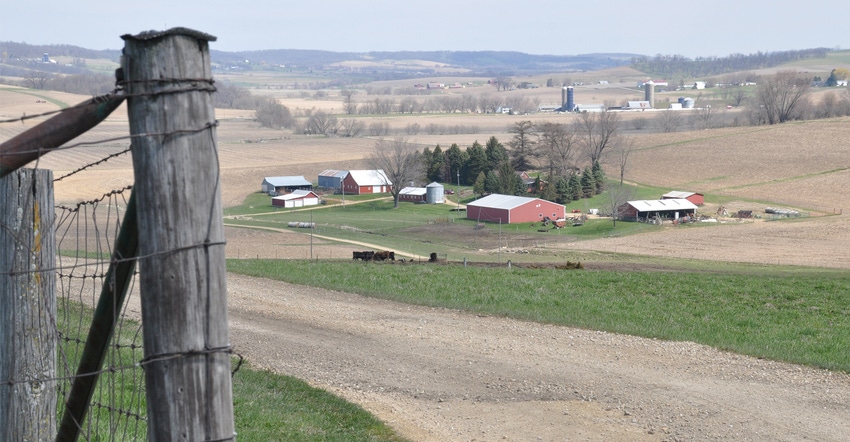May 13, 2020

Many farmers approaching retirement age have no interest in retiring. Their goal is to “die with my boots on, still doing what I love!” Others, however, would like to step out of the rat race and enjoy a few stress-free years of living off the equity they have built up over a lifetime of hard work and good management.
Let’s do some retirement math.
Farmer Fred is 65 years old. He started farming with his father as a teenager. He worked hard, made sacrifices and managed well for 50 years. He figures his land will provide rental income to supplement his social security. The proceeds from the sale of $1 million worth of equipment and grain on hand at the close of the year seem more than adequate to assure a very comfortable 20-plus-year retirement.
Fred believes he could invest the proceeds at 4%. He wants to withdraw $50,000 at the beginning, and the same amount each year thereafter. If he invests $1 million and makes these withdrawals, he would not run out of money until age 103, after having withdrawn over $1.86 million. Seems like a safe bet.
However, there is a problem with that. Fred’s equipment is fully depreciated. Sale of grain is 100% taxable income. If he retires at the close of the 2020 crop year, he will not be able to take prepaid expenses for 2021 as deductions against current income, so his 2020 income will spike. But even worse, when he sells the equipment and grain, he will realize an additional $1 million of self-employment income. The state and federal taxes will easily exceed 40%, leaving him less than $600,000.
With only $600,000 to invest and withdraw from, by the age of 81 he will run out of money after withdrawing a total of $789,000. Not such a safe bet!
Alternative retirement plan
Could Fred retire without paying the $400,000 in taxes?
In the March 2016 Prairie Farmer, I wrote about a strategy Fred could use if he has a successor in the family. Through the carefully coordinated use of two limited liability companies electing “S corporation” taxation, Fred could wrap up as the farmer, effectively put his successor in his shoes, keep the successor from having to borrow operating capital from the bank, and keep the full $1 million in the family.
But what if there is no successor? What if Fred really is ready to sell out and rent the land to a neighbor? A charitable remainder trust (CRT) might provide the right solution.
Fred creates the CRT and will serve as its trustee so he can retain control of the investments. He transfers his equipment and grain to the CRT, and then sells it all. The CRT is exempt from income taxes, so it owes no tax on the $1 million, which Fred invests in the trust name. From the CRT, Fred will receive a fixed payment of $50,000 for life. His payments will be taxable income, but he will be in a relatively low tax bracket. If he lives a normal life, he will get 26 payments for a total of $1.3 million. If the securities grow annually by 4%, at Fred’s death, there will remain $468,000 to pass to his church or some other charity he selects.
When Fred contributed the assets to the CRT, because it is an irrevocable trust, the tax law says he has made a gift to charity, but the charity won’t get anything until Fred dies. The IRS says the present value of that gift is $220,000. So not only does Fred have more money available to invest and he gets to leave money in the end to charity instead of losing it to taxes upfront, but he also receives a charitable deduction to take off his income taxes in the year he set up the CRT. That deduction can be spread over several years, since he probably won’t be able to write it all off in one year.
With all the advantages for Fred, it is hard to believe this is considered charitable at all! Yet it is a long-standing opportunity in the tax code to encourage us to use our resources to support worthy causes.
Ferguson is an attorney who owns The Estate Planning Center in Salem, Ill. Learn more at thefarmersestateplanningattorneys.com. The opinions of this writer are not necessarily those of Farm Progress/Informa.
About the Author(s)
You May Also Like






